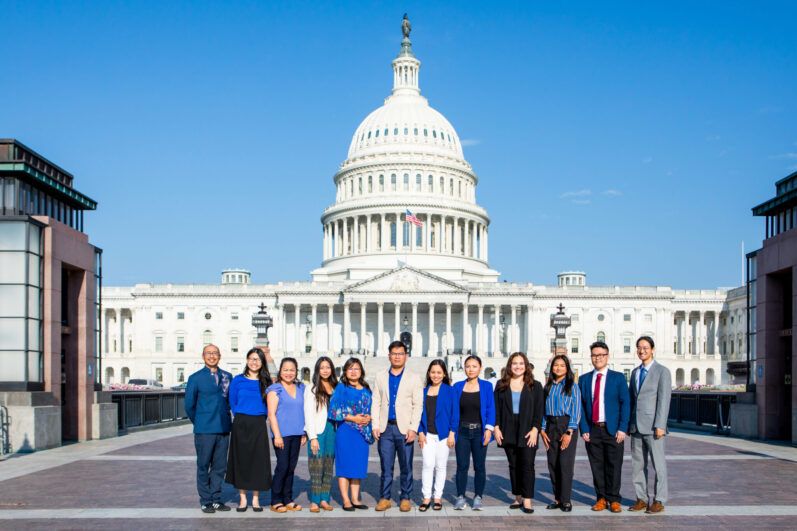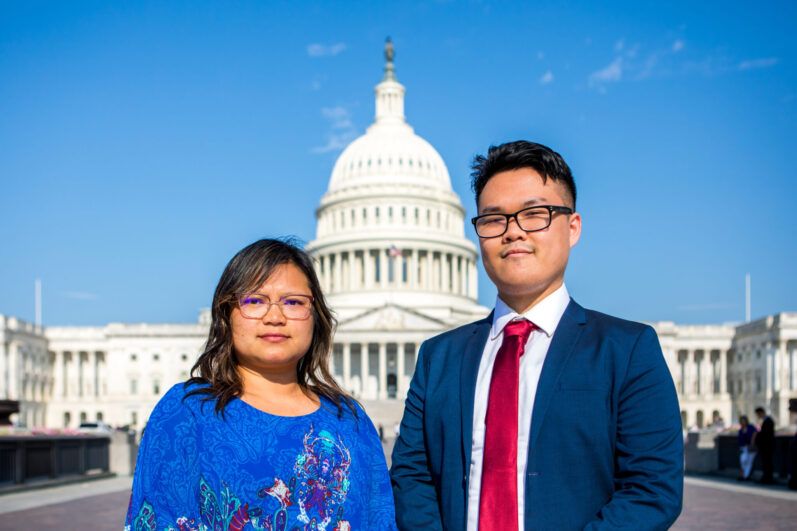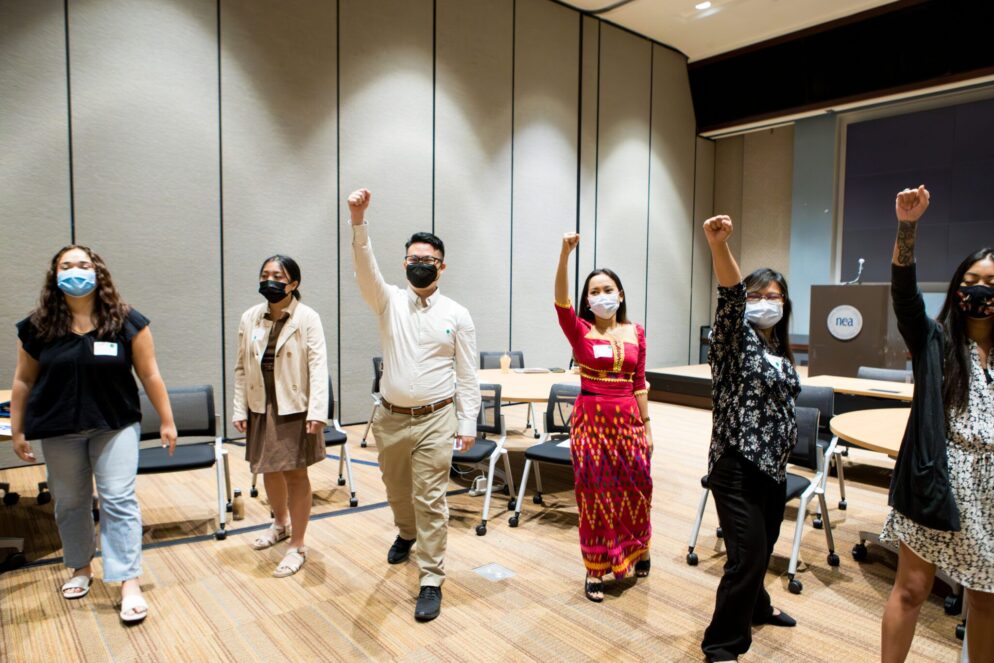By Sou Saechao
I came into SEARAC’s Leadership and Advocacy Training (LAT) program with little to no experience with meeting legislators. I just knew that my goal was to gain skills to advocate for my underserved Iu Mien community.
When I met with my health facilitators, Tuấn and Andrew, I sensed that they had a passion for passing their knowledge to the group. After we introduced ourselves and explained why we chose to take part in the program, Tuấn encouraged us to go deeper and exclaimed that we said much more in our LAT application.
One of the things that we shared in our introduction to our health group was what superpower we bring to our community. I thought long and hard about the question. I imagined a superpower to be something supernatural such as breathing fire or controlling the weather. Tuấn gave an example that his superpower is being a coach and building power. I listened to what everyone shared about their superpower and then reflected on my own superpower. I reflected back to the time I started the Iu Mien Student Union at UC Berkeley because I wanted to connect with the marginally small Iu Mien student body on campus. From then on, I was connected to Iu Mien professionals and we shared the same feelings of isolation as being the first in the Iu Mien community for our achievements, whether that’ll be becoming the first Iu Mien licensed clinical psychologist or the first Iu Mien epidemiologist. Being the first at something is stressful because it meant that a barrier was overcome in order to reach that achievement. But through that reflection, being the first becomes the norm due to the need for someone that is part of a small marginalized community to make an impact. In the void of SEAA representation, I stated that my superpower is initiating a project because if no one else wants to initiate, then I will.
Afterwards, Andrew grounded our group by talking about the objective of the group session. He shared that the knowledge gained from LAT does not start and end in the head with the knowledge gained. It also affects our heart, where we feel connection and friendship. Armed with that knowledge and emotion, our hands will fight for the policy needs of our SEAA community. Andrew’s words moved me and I was reminded of why I chose to participate in the LAT program: I saw the needs of my Iu Mien community and the health disparities that they faced.
I came into LAT due to the dearth in the narrative of the Iu Mien community. In my family, we do not talk about our mental health and I struggled to talk about my own. When I was an undergrad at UC Berkeley, I led an independent research project to assess symptoms of anxiety and depression among Iu Mien high school students and their parents. My findings have made me realize that my experience is not an individual one and that it is shared with all of the participants of my project. Gathering and weaving the data and information was not enough, I needed to center their voices. Attending LAT supported me in gaining the knowledge to be a leader and an advocate. By sharing their stories with legislators, I was not only able to create connections and empower change, but also able to give power and voice back to my community.

On the final day of LAT, came our legislative meetings, a chance for us to persuade legislative staff to support the Health Equity and Accountability Act (HEAA). After our meetings and sharing our narrative, my group realized that we have the power to move hearts. To our joy, we celebrated and gave each other affirmation of the work that we each had contributed, Tuấn once again asked us again about our superpower. I once again stated that my superpower was initiating a project. A project that inspires change. A project that moves hearts. LAT has taught me to embrace my superpower.
We need to rethink superpowers as only being granted to the chosen few. We all have commitments and a superpower that we bring to our Southeast Asian American community. Tapping into that superpower starts with telling your story and identifying the needs of your community. If we do not tell our stories in decision-making spaces, then who will?

Sou is SEARAC’s Summer 2023 Communications Intern.

